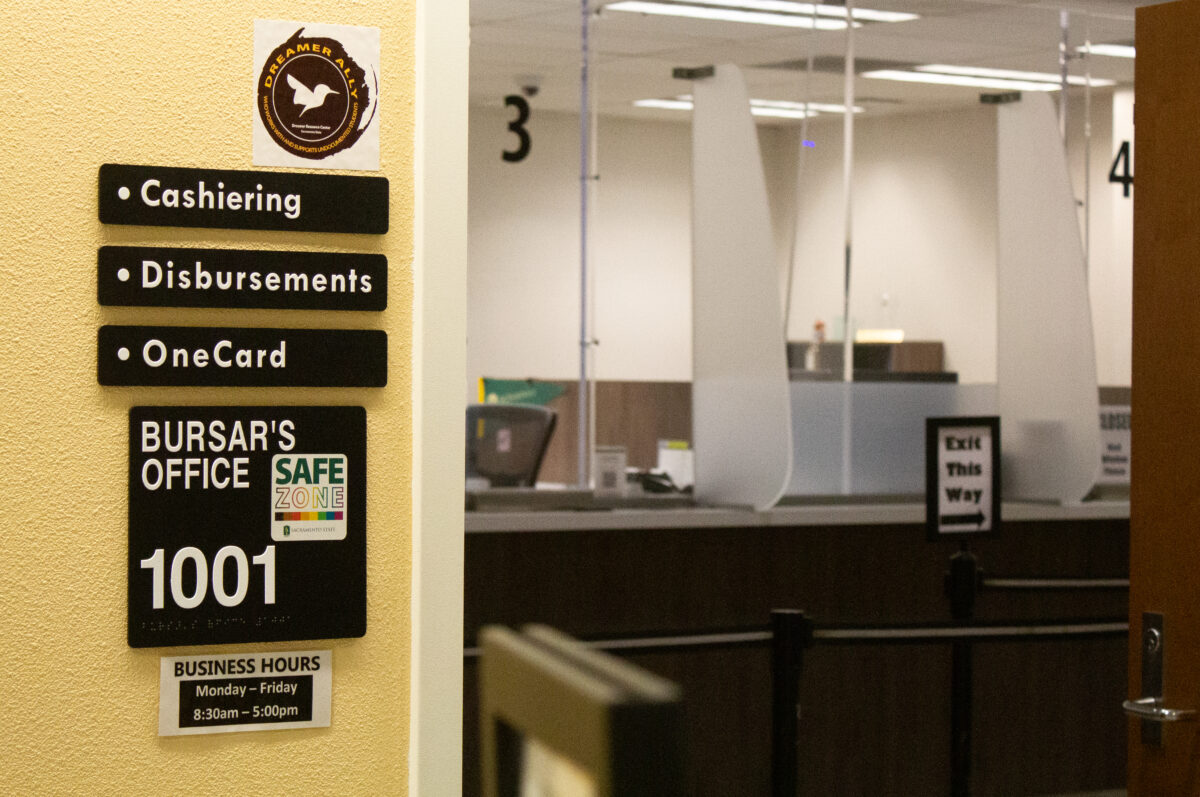In response to the California State University Board of Trustees vote to approve a multi-year tuition increase proposal on Wednesday, Sept. 13, students at Sacramento State are left wondering what it will mean for their futures.
The proposal entails a 6% increase over the course of five-years, starting in the fall semester of the 2024-2025 academic year and ending in 2028-2029. By the end of the increase, undergraduate students taking more than six units at a CSU school will be paying over $7,000 a semester.
RELATED: BREAKING: CSU Board of Trustees approves tuition increase proposal
Audrey Reposa, a second-year business major, said that the decision to raise tuition prices felt like a sudden one.
“I haven’t really had any viral comment or notification to inform me about it,” Reposa said. “It’s just surprising, I didn’t really think that would happen.”
Reposa also said that the tuition increase may impact her own choice on whether or not she would pursue a Master’s degree after receiving her undergraduate degree, solely due to the cost and affordability.
Graduate students are also among those impacted by the upcoming increases, with graduate students taking over six or more units will be looking at a bill of $9,604 a semester by the 2028-2029 academic year.
Angela Ulloa, a third-year communication studies major, is one of many students unaware of the tuition proposal and dependent on FASFA to pay for college.
“I’m riding on FASFA,” Ulloa said. “The moment FASFA’s over for me, I’m gonna basically drop out of college because I can’t afford it.”
Ulloa said that she additionally relies on other financial aid such as the CalGrant, a financial aid program overseen by the California Student Aid Commission, in addition to FASFA in order to pay for the cost of college.
Sac State President Luke Wood introduced a 10-point plan via a SacSend on Sept. 14 in response to the increase. The email included a video with student leaders from groups such as Associated Students Inc. and Students for Quality Education.
The plan describes the establishment of a “tiger team,”or team of experts. The team will work to address barriers in financial aid and scholarships, increase opportunities for student employment and establish a basic needs center.
Prior to the Board’s vote, the California Faculty Association made their stance clear that this proposed tuition hike presents additional disadvantages for students.
“In solidarity with students the California Faculty Association opposes the proposed tuition hikes,” CFA Capitol Chapter President Anne Luna-Gordinier said. “The CSU is essentially asking students who are already at a disadvantage to pay for the CSU Chancellor’s Office and Board of Trustees’ decades of mismanagement and misuse of funds.”
Additionally, the Sac State chapter of Students for Quality Education, an organization led by CSU students, also commented on the vote beforehand.
“Students for Quality Education joins CSU students, faculty and staff in publicly opposing the absurd, endless, multi-year tuition increase proposal” Leila Cormier and Michael Lee-Chang, Sac State’s SQE interns for the 2023-2024 academic year, said. “The CSU refuses to acknowledge the profound negative impact their status quo has had on students and faculty.”
Additionally, the chapter released an open letter to the CSU and Wood opposing the increase on Sep. 8. The letter was signed by several prominent members of the Sacramento community, including Sacramento City Councilmember Katie Valenzuela.
During a press conference for student journalists on Sep. 6, CSU Executive Vice President Steven Relyea said that 60% of undergraduate students are covered by financial aid. Emilie Jocson, a fourth-year international student and president of Rainbow Alliance, said the proposal doesn’t take certain student populations into account.
“It’s already hard enough for students from California, transfer students, out-of-state students,” Jocson said “It’s even harder for international students.”
Jocson said one of the main reasons that international students come to the United States for college is affordable tuition due to currency exchange rates. Jocson said they are required to sign a financial agreement form before coming onto campus, acknowledging their ability to pay the full cost of tuition.
“How much are you willing to pay for your dreams,” Jocson said.




























































































































